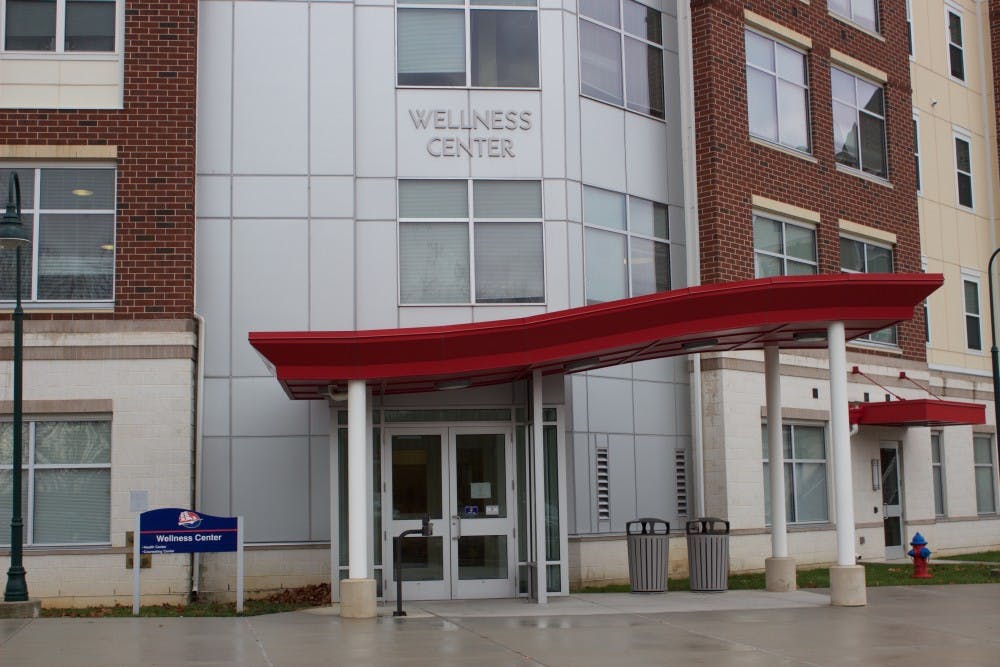Classrooms, residence halls and cafeterias turn into petri dishes filled with disease and illness ready to spread among close-quartered students like wild fires.
More than 7,000 students come and go from across Pennsylvania, state borders and even continents, picking up bacteria and illness along the way. Unknown to them, students can be carriers of the common cold or something more serious.
Shippensburg University sees occasional surges of colds and viruses throughout each semester, but rare diseases can catch people’s attention. One such instance is a case of whooping cough, formally known as pertussis, confirmed in a student at the Grace B. Luhrs University Elementary School last week.
Dr. Todd Peterson, medical director of SU’s Etter Health Center, wrote a summary of the illness which was emailed to the SU community. Pennsylvania saw more than 800 cases of the disease last year, he said, and it is not unusual for whooping cough cases to arise.
The respiratory disease is highly contagious, according to the Centers for Disease Control and Prevention (CDC), but the SU community shouldn’t fear an epidemic.
“High numbers of pertussis are not expected on the college campus and pertussis is not expected to be a serious health threat to college students, faculty or staff,” Peterson said in the email summary. “However, it is important we limit the spread of the disease as best as we can, especially for the sake of young children or those with serious health problems in our community.”
Getting vaccinated is the best way to prevent whooping cough, according to the CDC, but people of all ages are susceptible. Pertussis got its nickname because of its obvious symptoms, which include rapid, sudden and prolonged coughing along with vomiting during or after fits. The “whooping” stems from desperate gasps for air after the lungs are depleted from coughing.
The well-known symptoms do not start from the get-go. Cold-like symptoms are common for a week or more before the illness worsens. A runny nose, slight fever and occasional cough sound like any number of minor ailments, but if they persist you should consider seeing a medical professional for evaluation.
Peterson advises students, faculty and staff to get or confirm they have a whooping cough vaccine. If you are in contact with someone who is ill with whooping cough you can talk to a doctor about getting preventative antibiotics. Investing in preventative measures can save you and your peers a headache later.
While antibiotics are used to treat people with whooping cough, it is vital for the treatment to begin early. After three weeks the bacteria may have left your body, damaging it along the way, according to the CDC.
There is nothing major for the SU community to worry about at the moment, but be aware of what to look for and what to do if you think you have whooping cough.
SU has endured a divisive election cycle and faculty strike. The last thing the community needs is to have dozens of students coughing their lungs out in the library while trying to prepare for finals week.
Take the time to get some rest, lay off the partying and pick up some fruits and vegetables. Additionally, schedule a doctor’s appointment when you get home for winter break. Make sure your vaccines and general health are ship shape before you bring a host of bacteria and viruses back to the petri dish in January.





The Slate welcomes thoughtful discussion on all of our stories, but please keep comments civil and on-topic. Read our full guidelines here.